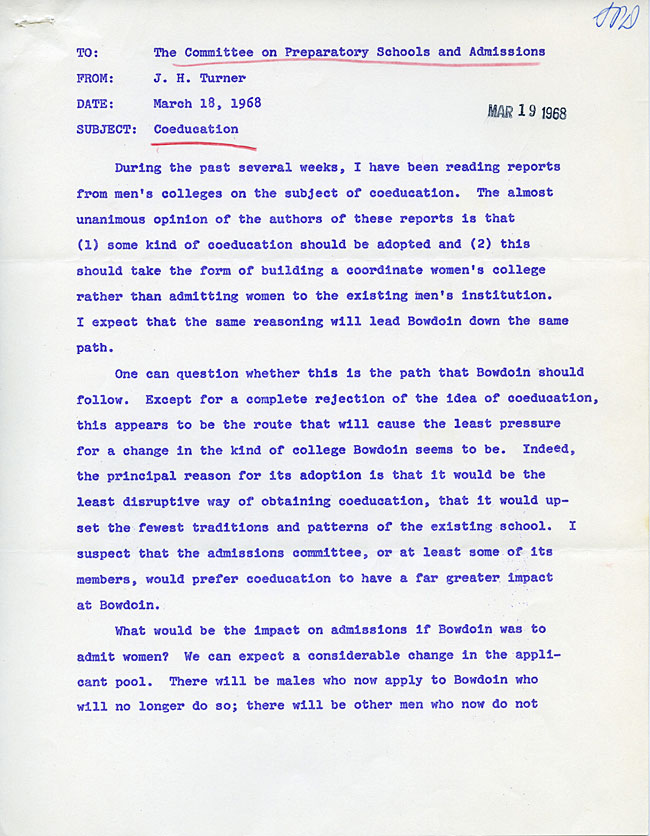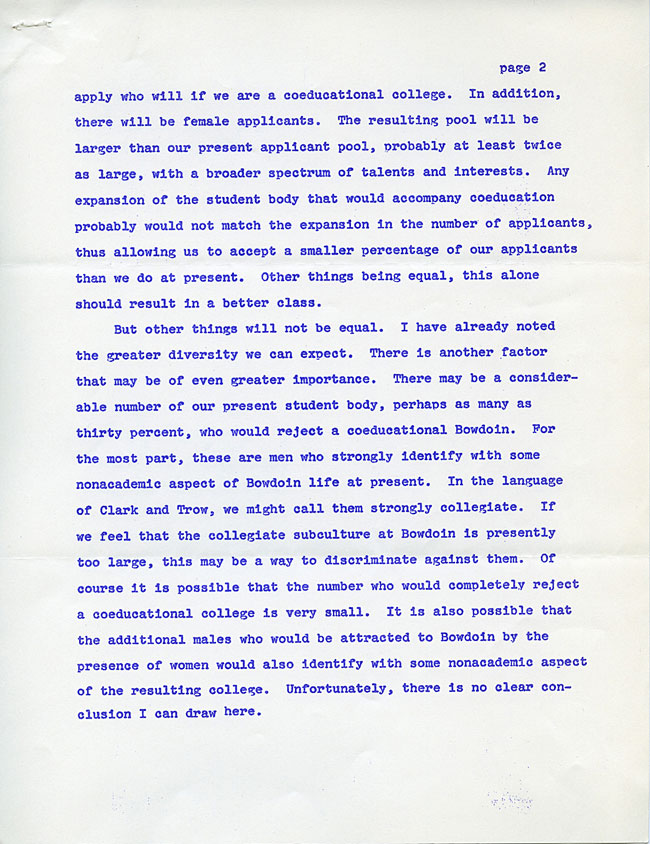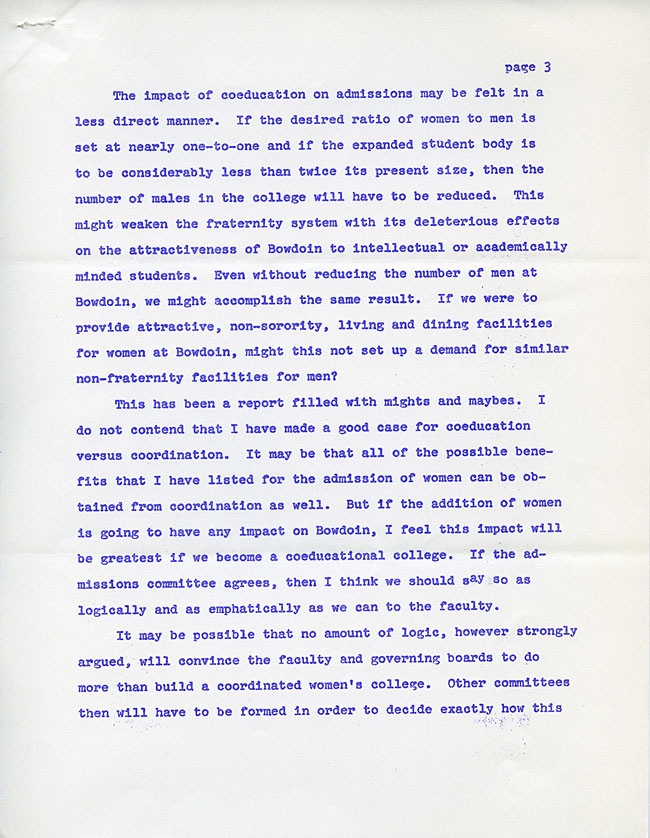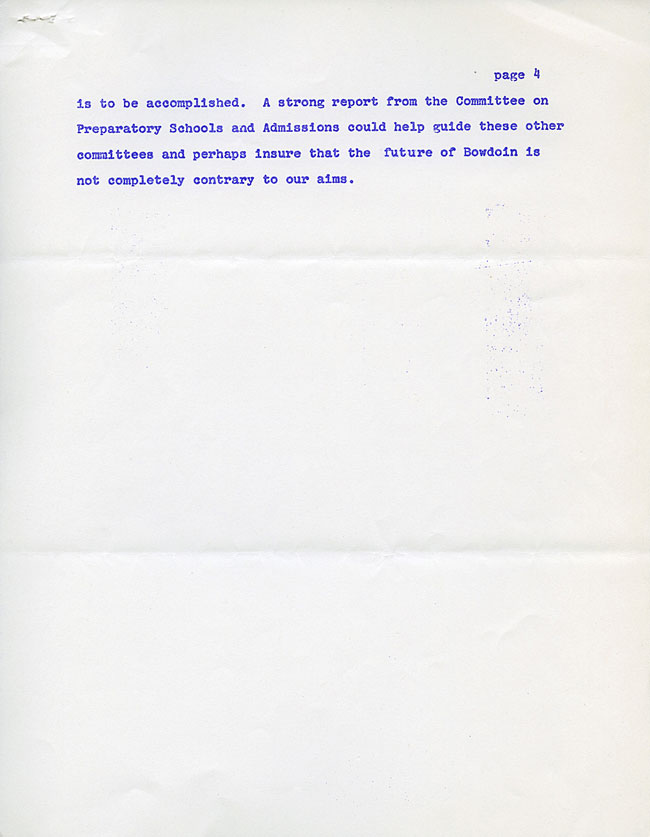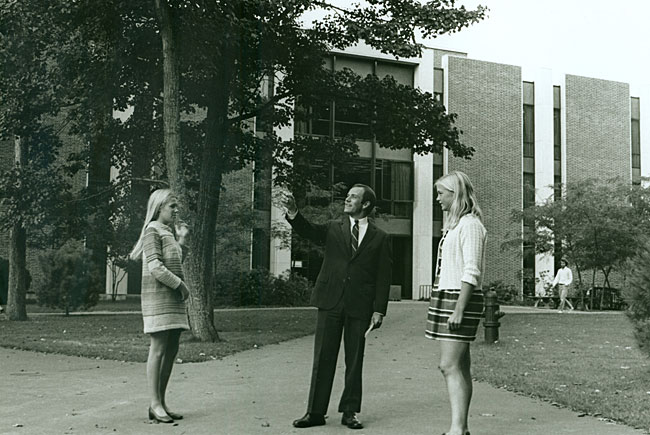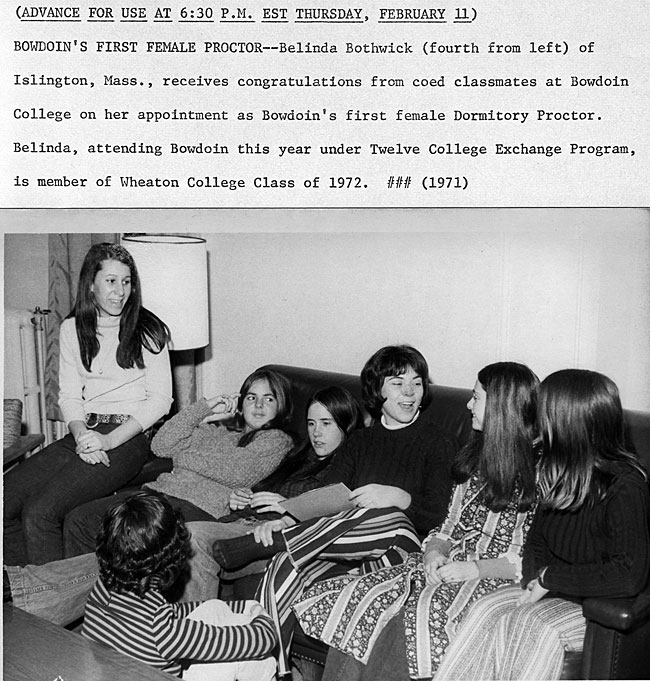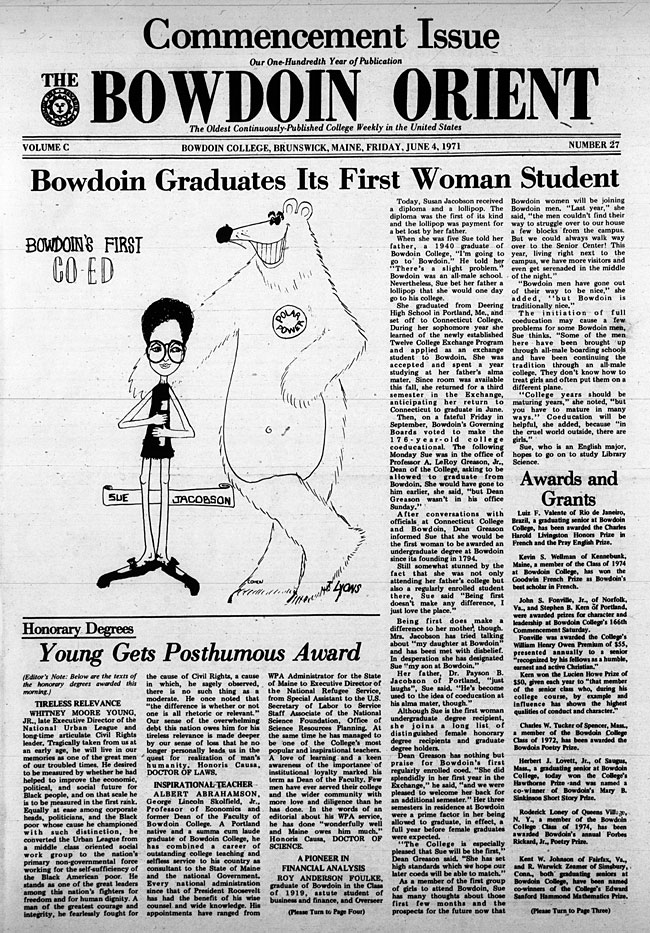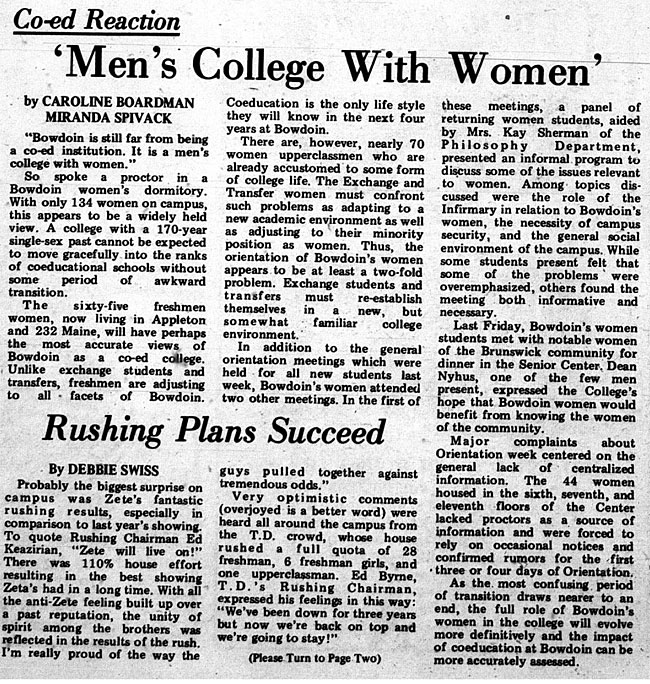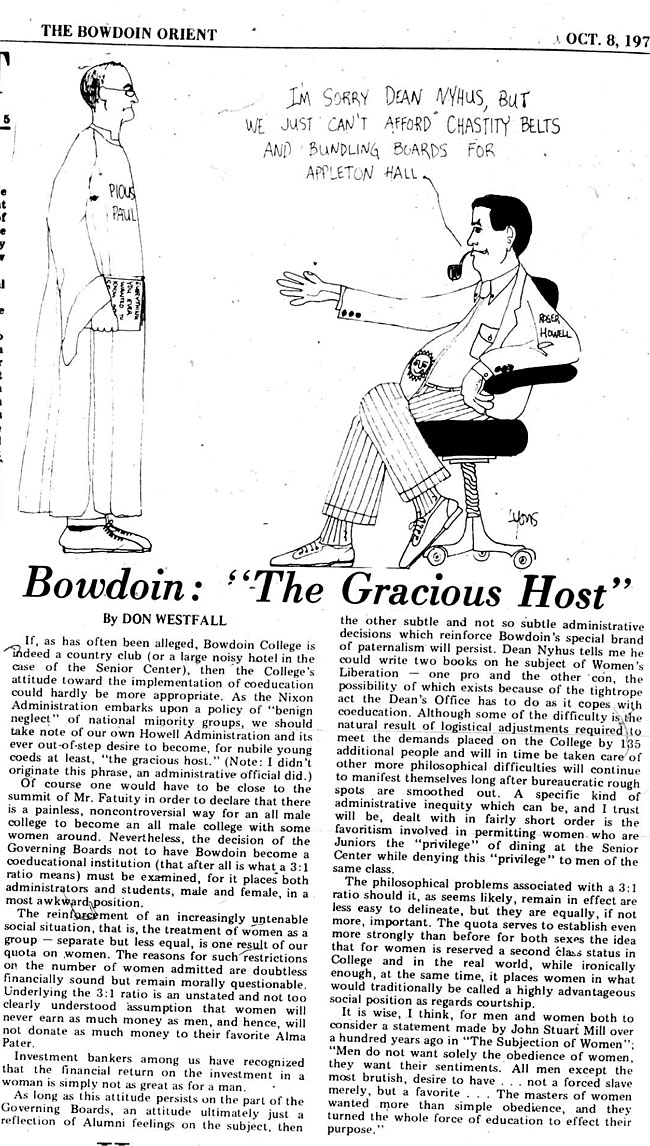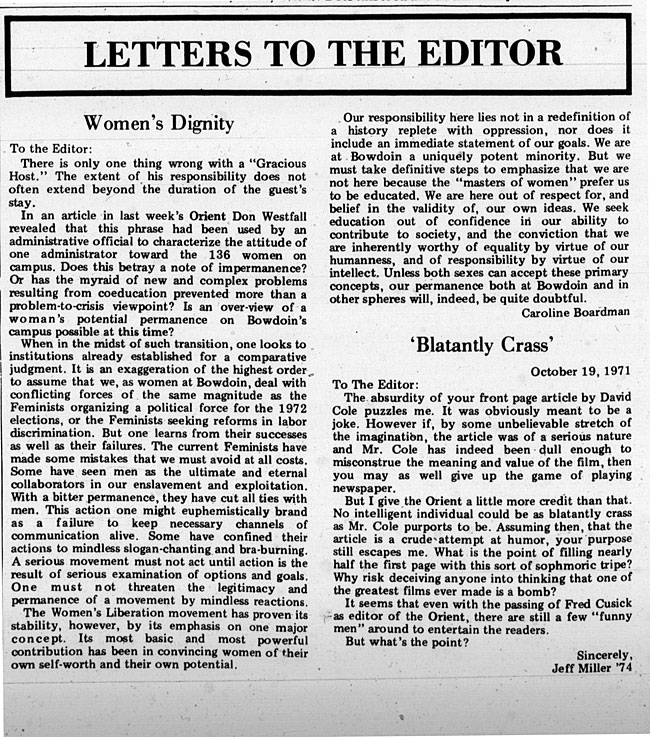In this letter (Document EN, 19), Professor of physics James H. Turner makes an argument for coeducation at Bowdoin. Written approximately two and a half years before the College made the decision to become coeducational, and three and a half years before the first class with women arrived at Bowdoin, Turner reflects on the possible effects of having women matriculate at the College.
Turner notes that many colleges at the time were turning to coordination (building a separate but related women’s college) rather than full coeducation. For example, Harvard had recently developed a coordinate relationship with Radcliffe College, one that would continue until 1999, when Harvard finally became fully coeducational. Turner argues, however, that Bowdoin would see a “far greater impact” from coeducation if it admitted women rather than built a coordinate college.
Regarding admissions, Turner suggests that coeducation will cause a much larger applicant pool that will have a “broader spectrum of talents and interests” and “result in a better class.” In fact, Marcia Synnott in Going Coed claims that the admission of women at Princeton in 1969 “raised the academic caliber of freshmen” (123). Turner also argues that bringing women to Bowdoin might result in a more academic college, because the men who will reject coeducation are likely the ones who “strongly identify with some nonacademic aspect of Bowdoin life at present.” Although Turner admits that his ideas are largely speculative and the advantages he raises might also be true of coordination, he remains an ardent supporter of coeducation because he would like to see the addition of women have a strong impact on the College.
